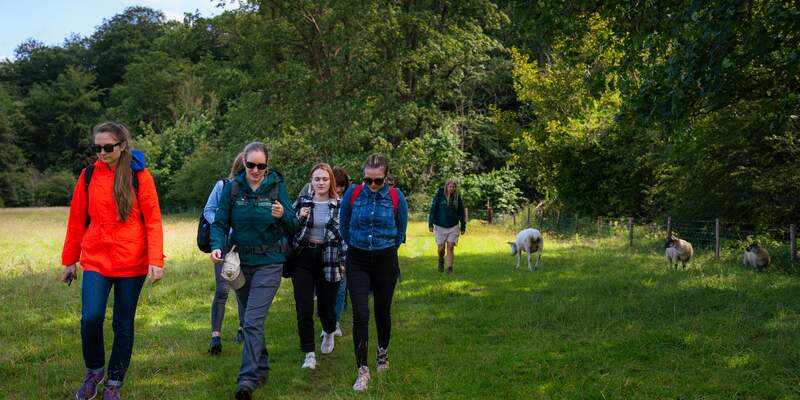
Taking time out
Why take time out?
Be clear about your reasons for taking time out.
- Why am I taking time out?
- What do I want to do during the period? (paid work, study, work shadowing, travel, voluntary work)
- How does this fit with my longer term career plans?
- What advantages will time out give me in the labour market?
- How much money do I need and how will I raise it?
Think through the practical implications
These might include:
- Organising your time – How long? When?
- Financing your plans
- Finding appropriate opportunities
- Recruitment cycle/applications
- Language issues (for overseas)
- Visas/work permits
Timing is particularly important if you hope to go onto a course or into graduate level employment immediately after your time out, e.g. the timing of recruitment for graduate schemes tend to recruit a year in advance. If you are not going to be in the country, how you will be able to research opportunities and make applications?
The key is to plan ahead as much as possible. Many applications are online and some employers conduct an initial telephone or video interview of applicants, which can be an accessible screening process wherever you are. Sometimes you may be able to negotiate deferred entry to a course or grad scheme. Some employers have starting points throughout the year and many smaller employers recruit as and when they need staff.
Different career areas have different recruitment patterns, so give time to researching possibilities before you leave university. Read our Graduate Jobs page to help you to understand the recruitment cycle.
How employers view time out
If you are clear about your motivation and are able to reflect on what you have learned or how you have developed during the time, employers are likely to view you very favourably. Employers recognise that an individual may have developed his/her skills, confidence or general maturity; it is up to you to demonstrate and articulate to employers what you have achieved and what effect this has had upon you.
Useful resources
Temporary work – UK
Unexplained employment gaps are not the best first impression from an employer’s perspective. Getting some temporary work while you look for something else is the perfect way to gain some valuable work experience, flesh out your CV and save some money.
- See Work while you study for general job sites.
Work experience – UK
- Take a look at our resources on work experience for ideas and tips on how to gain valuable work experience or work shadowing.
Work experience - abroad
- Check out our page on international work for more job search links and information on working abroad
- Research gap year and time out providers and reviews on sites like Go Overseas
- We also advertise thousands of opportunities for work in the UK and overseas via Handshake
Voluntary work
Volunteering is a great way to gain new skills, demonstrate teamwork, leadership, time management and compassion. Find a variety of volunteering opportunities through the following links:
- Volunteering Matters - charity organising UK placements
- Do It - database of opportunities in the UK and overseas
- NCVO - volunteering opportunities in the UK
- York-based volunteering placements and work experience
Study – UK
If you feel as though there is an academic area or skill you want to build on to help your future then take on some short courses. These are cheap (sometimes free) – ways to broaden your skillset:
- MOOCs (Massive Open Online Courses): many leading universities around the world offer FREE short courses in thousands of subjects – learn to code, speak a new language, build your presentation skills – whatever you want to do there will be a MOOC available! See more courses at edX.
- UK online course search with Find Courses or the National Careers Service
- Local colleges offer evening courses - see college and local council websites
- Check library and university noticeboards for courses and workshops, and the University of York open lectures.
Graduate Internships
If you need to get work experience once you graduate to boost your CV or to gain some specific experience in a sector you want to work in, you could try to get a graduate internship. Try some of these sites to find a vacancy:
- Inspiring Interns and Graduates
- Yorkshire Graduates
- Step
- Graduate internships are sometimes advertised on Handshake
Travel
Individual or group travel is a demonstration of independence, planning and resilience. To ensure you have a trip of a lifetime, make sure you have all the necessary documentation, vaccines, medication and insurance.
- Travel agents may be able to help plan your trip and advise on related issues, but be aware there will be a fee attached
- Travel guides such as Rough Guides or Lonely Planet are regularly updated by their writers to ensure accuracy, so be sure to purchase the latest version
- Check the government's country by country travel advice
Also, speak to people you know who have been to the countries you’re interested in. They will be able to point you in the right direction to start your adventure.
